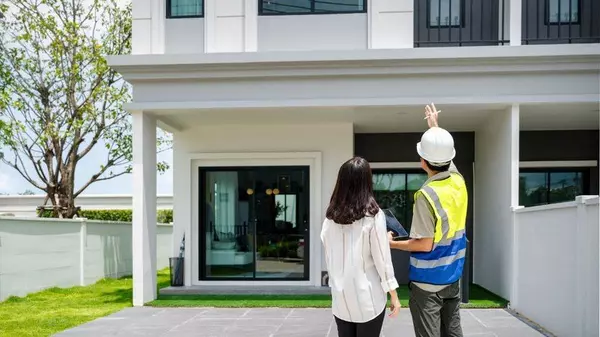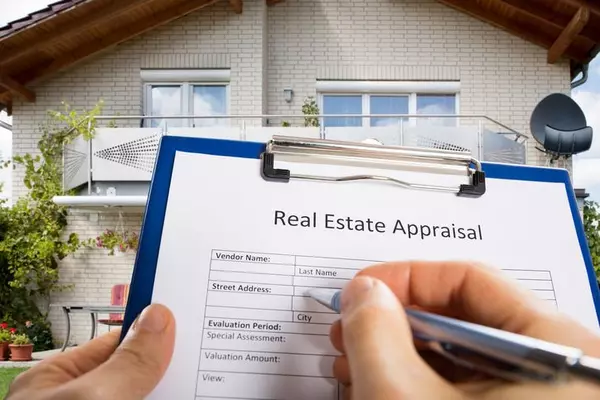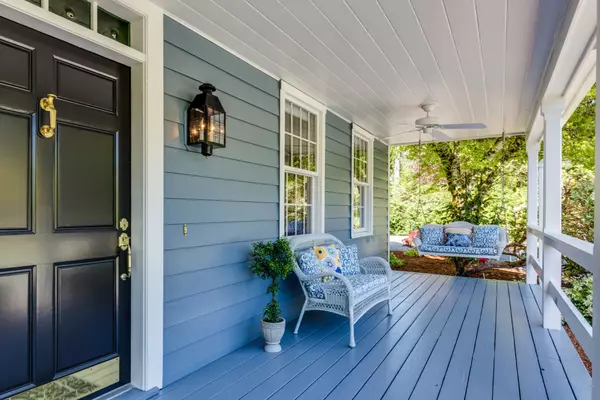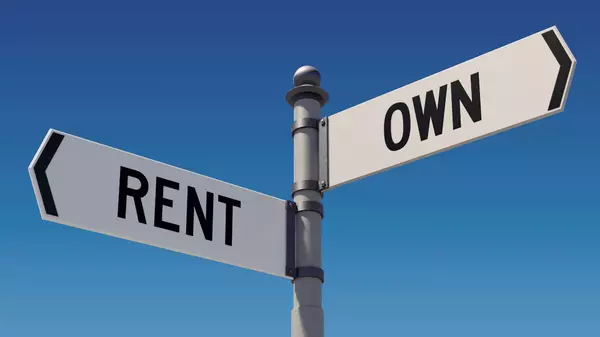5 Things to Know Before Relocating to St. Augustine
This blog outlines five key considerations for relocating to St. Augustine with tips to ensure a seamless transition.

Helpful Negotiation Tactics for Today’s Housing Market
If you think negotiating in today’s housing market is straightforward, think again. Negotiation is no longer just about the price—it’s about terms, contingencies, and timing. This blog will walk you through essential negotiation strategies to give you an edge in St. Augustine’s current market. From setting realistic expectations to leveraging contingencies, these tactics will help you navigate the process confidently, ensuring a win-win for buyers and sellers. Set Realistic Expectations One of buyers’ and sellers' biggest mistakes in today’s market is entering negotiations with unrealistic expectations. Knowing the current market conditions in St. Augustine is critical to aligning your expectations. For buyers, this might mean accepting that you won’t always get a massive discount. According to recent data, the average home in St. Augustine sells at or near the listing price. On the other hand, sellers may need to realize that while prices are still solid, fewer bidding wars mean buyers expect some flexibility. Research comparable properties that have recently sold in your area. This can help set a reasonable offer or listing price, and make negotiations more productive. By aligning your expectations with reality, you avoid unnecessary frustration and keep the process moving smoothly. Leverage Contingencies to Your Advantage Contingencies can make or break a deal, and how you use them in negotiations can give you a significant advantage. A contingency is a condition that must be met for a sale to proceed. For example, buyers can use financing or inspection contingencies to protect themselves. On the other hand, sellers may negotiate contingency periods or even waive certain contingencies to sweeten the deal for buyers. Inspection contingencies are particularly important for buyers in St. Augustine, where some homes are older and require significant updates. For sellers, offering flexibility on inspection-related repairs or closing timelines could make your property more attractive to potential buyers. Buyers should never waive an inspection unless they are absolutely sure of the home's condition. Conversely, sellers can consider pre-listing inspections to expedite the sale process and avoid surprises. Understand the Power of the Initial Offer Many believe the first offer is just the start of a lengthy negotiation, but in today’s market, your first offer can set the tone for the entire process. Buyers should aim for a fair yet competitive initial offer that reflects local market conditions. Lowballing in a tight market like St. Augustine can lead to rejection or a seller losing interest. Sellers should remember that an offer at or slightly below the asking price is still an opportunity. While it’s tempting to wait for higher bids, the longer a property stays on the market, the more leverage you may lose as buyers start to wonder why the home hasn’t sold. Avoid starting with offers far from market value—whether you’re buying or selling. A weak initial offer could hurt your negotiating power and set the wrong tone. Be Prepared to Compromise It’s rare to find a perfect scenario where both parties get exactly what they want in a negotiation. Being willing to compromise is critical to closing deals in today’s competitive market. Buyers should understand that, in some cases, offering flexibility on things like the closing date or repair requests might be just as valuable to the seller as a higher price. For sellers, compromise might mean considering offers with contingencies or accepting a slightly lower price in exchange for a faster sale. In many cases, small concessions can make a significant difference in moving negotiations along. As a buyer, be prepared to offer flexible closing dates if it’s what the seller needs. Sellers can consider negotiating on more minor repairs rather than making large concessions on price. Use a Strong Local Agent A skilled local real estate agent is your best tool for negotiating in today’s market. In a place like St. Augustine, where micro-market trends can vary from one neighborhood to another, having an agent who knows the area well is invaluable. They can offer insights on pricing strategies, how to handle multiple offers, and which negotiation tactics work best in different situations. For buyers, this means having someone who can help you craft a compelling offer that appeals to the seller’s priorities. On the other hand, sellers benefit from an agent who can market the property strategically and negotiate terms that maximize the home's value. Homes in St. Augustine listed with experienced agents tend to sell faster and closer to the asking price than those listed without professional representation. Focus on the Terms, Not Just the Price While price is a significant factor, negotiating terms can often lead to a more favorable outcome for both parties. This includes details like the closing date, what stays with the property, and who covers closing costs. For buyers, offering flexibility on closing dates or agreeing to take on some of the seller’s closing costs might be more appealing than offering a higher price. Sellers can sweeten deals by including appliances and furniture, or even offering a home warranty. Think beyond price. By negotiating the terms of the deal, you can create value for both sides, which is especially useful when budget constraints exist. Stay Emotionally Detached Negotiations can be stressful and getting emotionally attached is easy, but keeping a cool head is essential to getting the best deal. For buyers, falling in love with a property might push you to overbid or accept terms that aren’t in your best interest. Sellers can become too attached to their asking price or the emotional value they’ve placed on the home, making them resistant to fair offers. Avoid letting emotions cloud your judgment. Stay focused on the facts and numbers rather than feelings during negotiations. Conclusion In today’s housing market, especially in a city as dynamic as St. Augustine, smart negotiation tactics are essential to securing the best deal. Remember, negotiation is a give-and-take process—there’s rarely a perfect deal, but with the right strategies, you can achieve an outcome that works for both parties. Enlist the help of a local agent, stay flexible, and most importantly, stay informed—this is how you’ll succeed in today’s housing market. If you're ready to navigate the St. Augustine market with expert guidance, contact me today for personalized help buying or selling your home!

Everything You Need to Know About Portability in Florida
Portability in Florida gives homeowners the unique advantage of transferring their Save Our Homes (SOH) tax benefit from one property to another. This benefit allows you to preserve part of the tax savings from your previous homestead when you purchase a new one. Let’s break it down in detail. What is a Homestead Property in Florida? A homestead property in Florida is a primary residence that qualifies for special legal protections and tax benefits under the state's homestead exemption laws. To be classified as a homestead, the property must be the homeowner’s permanent residence as of January 1 of the tax year. Homestead properties are eligible for the Florida Homestead Exemption, which reduces the property's taxable value, lowering property taxes. Homestead properties in Florida are also protected from forced sale by creditors, except in cases like unpaid property taxes or mortgages. Only homestead properties are eligible for the Florida Save Our Homes (SOH) tax benefit. What is the Save Our Homes (SOH) Amendment? The Save Our Homes (SOH) amendment to the Florida constitution was enacted in 1995. It provides a tax benefit by limiting an increase in the assessed value of a homestead property to 3% annually or a change in the Consumer Price Index (CPI), whichever is lower. This cap helps protect homeowners from sudden spikes in property taxes as market values rise. The difference between the market value and the capped assessed value creates the SOH benefit, which can be transferred to a new homestead property using portability. What is Portability? Portability works in conjunction with the Save Our Homes (SOH) amendment by allowing Florida homeowners to transfer the tax savings accumulated from the SOH cap to a new homestead. When you move to a new home, portability lets you transfer that SOH benefit (the difference between the market value and capped assessed value), reducing the taxable value of your new property. How to Qualify for Portability To qualify for portability in Florida, you must have had a homestead exemption on your previous property and establish a new homestead within two years of abandoning the old one. This allows you to transfer the SOH benefit tax savings from your old home to your new one. The maximum amount you can transfer is $500,000, depending on the difference between the market value and the assessed value of your previous home under the SOH benefit. When you move to a home of equal or greater value (upsizing), you can transfer the full SOH benefit to the new property. For example, if your previous home had a market value of $400,000 and an assessed value of $250,000, the $150,000 difference can be transferred to reduce the taxable value of your new home. On the other hand, if you are downsizing to a property with a lower market value, the benefit is prorated. In this case, you only transfer a percentage of the SOH benefit based on the relative values of both homes. The Application Process Portability in Florida isn’t automatic, so homeowners need to take specific steps to transfer their SOH tax benefit. You must file a Transfer of Homestead Assessment Difference (DR-501T) form, typically submitted alongside your Homestead Exemption (DR-501) form. These forms can often be completed online, as is the case with the St. Johns County Property Appraiser’s Office, or filed in person. Be sure to check your local property appraiser’s website for instructions on how to file both applications correctly. The Importance of Deadlines In Florida, establishing a new homestead and transferring your SOH benefit through portability are two related but distinct processes with separate deadlines. To qualify for portability, you must establish your new homestead by applying for the homestead exemption within two years of abandoning your previous homestead. This ensures that your new home is eligible to receive the tax savings. In addition, you have three years from January 1st of the year you abandoned your old homestead to apply for the portability benefit. If you miss this deadline, you forfeit the SOH benefit, meaning your new home will be taxed at its full market value. This could significantly increase your property tax bill, so it's crucial to file both the homestead exemption and the portability forms on time. Common mistakes include missing the three-year portability deadline or assuming portability is automatic. You must file a separate application for portability alongside your homestead exemption. Conclusion Portability in Florida is a powerful tool that allows homeowners to carry their SOH benefits from one homestead to another. Whether you’re upsizing or downsizing, being aware of the eligibility requirements, deadlines, and potential savings can make a significant difference in your annual property tax bills. If you're planning a move or have questions about how portability works, feel free to reach out.

What to Keep, Sell, or Donate When Selling Your Home in St. Augustine, FL
Selling a home in St. Augustine, FL, can be an exciting yet overwhelming process. One of the most significant challenges homeowners face is determining what to keep, sell, or donate as they prepare to move. Not only does this process help decluttering and staging your home for prospective buyers, but it also simplifies your move. This blog provides a comprehensive guide to making these decisions, helping you achieve a seamless transition and potentially earning extra cash. Assess the Value of Your Items Begin by evaluating the monetary and sentimental value of each item. High-value items such as antiques, artwork, or designer furniture might be worth keeping or selling, while everyday items with little sentimental value could be donated. Assessing value helps decide which items will benefit you most in your new home or contribute to your moving budget. Consider appraising your valuable pieces to determine their current market value. If an antique dining table is worth a significant amount, selling it could provide funds for new furniture in your new home. Prioritize Sentimental Items Items with sentimental value, such as family heirlooms, photographs, and memorabilia, should be kept if they hold personal significance. However, if these items are bulky or difficult to move, consider creating digital copies of photos or documents to save space. Create a memory box for irreplaceable items. This keeps your treasured possessions safe and ensures they are easily accessible during the move. Utilize the "One-Year Rule" A practical method for decluttering is the "one-year rule:" if you haven’t used an item in the past year, it’s time to consider selling or donating it. This rule helps reduce unnecessary clutter and makes your move more manageable. According to a study by Organizing Specialist, Regina Lark, the average American home contains over 300,000 items. By applying the one-year rule, you can significantly reduce this number and simplify your move. Organize a Garage Sale Hosting a garage sale is an excellent way to sell items you no longer need. It helps you declutter and earn some extra money. Promote your sale through local community boards, social media, and neighborhood groups to attract buyers. Organize items into categories and price them reasonably. Providing clear signage and having plenty of change on hand will ensure a successful sale. Donate to Local Charities Donating items to local charities is a generous way to give back to the community. Many organizations in St. Augustine, such as the Betty Griffin Center Thrift Store, Alpha-Omega Miracle Home, and Ayla’s Acres Thriftique, accept gently used clothing, furniture, and household goods. Ensure the items are in good condition before donating. There are many more local charities in town that are always accepting donations. Look for those whose mission statements align with your values. Donating not only helps those in need, but can also provide you with a tax deduction. Just make sure to request a receipt when dropping off your donation so you have a record of it when it comes time to file your taxes. Recycle & Dispose Responsibly For items that cannot be sold or donated, ensure you dispose of them responsibly. Recycle electronics, batteries, and other materials at designated recycling centers. Avoid contributing to landfills by exploring all recycling and disposal options available in St. Augustine. Many local businesses offer junk pick-up services for recycling or disposal, usually for a fee. This option can be particularly worthwhile if you have more items than you can transport on your own. Plan Your New Space Consider the layout and space of your new home when deciding what to keep. Measure your new rooms to ensure your furniture fits and suits the new space. This prevents moving items that won’t be practical in your new home. Create a floor plan of your new home and plan where each piece of furniture will go. This helps in visualizing your new space and avoiding unnecessary moving expenses. Use painters tape when measuring out your furniture in the new space so you can see the exact location of where everything will go and whether they will fit. This ensures you don’t move furniture that you won’t be able to use. Hire Professional Help If the task of sorting through your belongings feels overwhelming, consider hiring professional organizers or moving consultants. They can provide expert advice and assistance in deciding what to keep, sell, or donate. Professionals can help streamline the process and offer services like estate sales or consignment for high-value items. Conclusion Making decisions about what to keep, sell, or donate when selling your home in St. Augustine can be a daunting task. However, with careful planning and thoughtful consideration, you can simplify the process and ensure a smoother transition to your new home. By assessing the value of your items, prioritizing sentimental belongings, and utilizing practical strategies like the one-year rule, you can make the most of your move. Remember to donate responsibly and recycle what you can. If you need any assistance with your move or have questions about selling your home in St. Augustine, feel free to contact me. I'm here to help make your transition as smooth as possible! Happy moving!
Categories
Recent Posts











